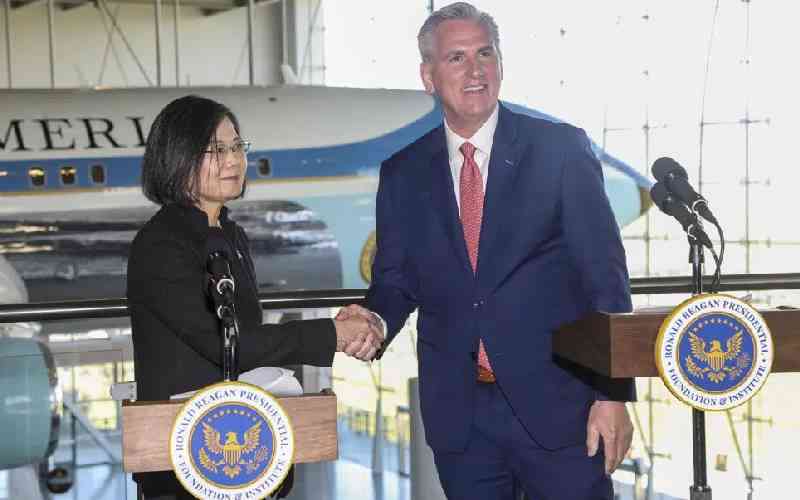×
The Standard e-Paper
Home To Bold Columnists

China vowed reprisals against Taiwan Thursday after a meeting between the U.S. House Speaker and the island's President, saying the U.S. was on a "wrong and dangerous road."
Speaker Kevin McCarthy hosted Taiwan President Tsai Ing-wen on Wednesday in a show of U.S. support for the self-ruled island, which China claims as its own, along with a bi-partisan delegation of more than a dozen U.S. lawmakers.